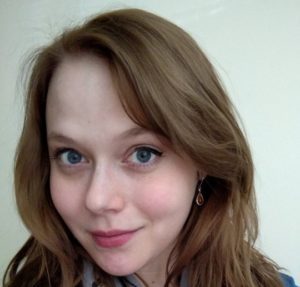
In the spring of 2012, Jillian Hinderliter (BA 2012, MA 2013), a senior History major and Jewish Studies minor, found herself in a quandary. She had learned of the prominence of Jewish women in the women’s health movement; eight of the 12 original founders of the groundbreaking women’s health collective “Our Bodies, Ourselves” were Jewish, for example, as were four of the five founders of the National Women’s Health Network. She wanted to know more about these women’s work, their motivations, and the extent to which their experiences were conditioned by their Jewish identity. Yet existing scholarship on the women’s health movement revealed little about the relationship between these activists’ work and their Jewishness.
Many undergraduates would have stopped there, opting for a different – and less challenging – topic as a research paper. Hinderliter, however, was determined. Over the course of the semester, she conducted extensive oral histories with seven women, including Paula Doress-Worters, one of the founding members of the Boston Women’s Health Book Collective in 1969; Judi Hirschfield-Bartek, whose breast cancer activism began in the 1990s; and Rochelle Shoretz, who founded Sharsheret, a cancer support group for Jewish women, in 2001. (Shoretz passed away in the summer of 2015, at the age of 42.)
Along with archival material and secondary research, these oral histories formed the basis for Hinderliter’s impressive senior thesis, “Winning the Right to Respect, Equality, and the ‘Means of Reproduction’: Assessing Jewish Women as Women’s Health Activists, 1968-Present.” Although the focus of women’s health activism changed over the decades and the nature and impact of the women’s Jewish identity varied considerably, certain themes were clear.
“[T]hese women were often motivated by an infinitely complex equation of experiences,” Hinderliter argued, “including, but certainly not limited to: their historical understanding of Jews as a marginalized religious and ethnic minority; the cultural, ethical, and political traditions of that minority; and ultimately the unifying experience of womanhood in a nation that routinely placed medical authority over the female body in the hands of patronizing, often dismissive men.”
After receiving her MA in 2013 through the Plus One program in History, Hinderliter spent the next two years working at the Trinity College Library in Hartford, CT. But that senior project continued to percolate in the back of her mind. Those interviews were too important to sit, unused, on her computer, she realized. Either they needed to be deposited in an archive for other scholars to use in the writing of the women’s health movement, or she needed to use them herself. She soon realized she wanted to be the scholar to write that history. And so, in the winter of 2014-15, she applied to graduate school.
This spring, Hinderliter is completing her first year in the Ph.D. program in History at the University of South Carolina. Having grown up in Pennsylvania and attended college in the Northeast, she is enjoying diversifying her experiences as a student and a teacher at a large, public Southern university and getting a Southern perspective on both women’s history and Jewish Studies.
Right away Hinderliter had the opportunity to continue her own research. Invited to attend the 40th anniversary celebration of the National Women’s Health Network in November 2015, she met many of the Network’s founders and early board members and collected additional oral histories. She has maintained her focus on Jewish women, struck by their continued absence in existing scholarship on the movement. New books have appeared on African American and Latina women, she observes, but little attention has been paid to the specificity of Jewish women’s involvement, perhaps because of the assumption that Jews’ whiteness made them indistinguishable from other white activists.
In early April, Hinderliter presented her first academic paper, speaking on “Activist Bodies, Jewish Identities: Profiles of Jewish American Feminists in the Women’s Health Movement, 1968-Present” on a panel on Race, Politics, and Health at the Southeastern Women’s Studies Association conference.
This summer, Hinderliter plans to continue conducting interviews, as well as to examine the personal papers of some of the founders of the modern women’s health movement, housed at Harvard’s Schlesinger Library and Duke University. She would also like to broaden the project beyond the Northeast by exploring the participation of Jewish women from Southeastern states.
After receiving her Ph.D., Hinderliter hopes ultimately to return to the field of public history that she pursued for her masters, or to work with a humanities organization. She is committed to getting the story of Jewish women in the women’s health movement into the historical narrative and into public consciousness. Touching as it does upon women’s health, the role of the federal government in health care, and the body as a point of feminist activism, the topic has tremendous contemporary relevance.
Looking back at her time at Northeastern, Hinderliter credits her experiential education, in particular her co-op at the Northeastern University Archives and Special Collections and her internship at the Paul Revere House for her MA in Public History, for providing her with many useful skills. Even more importantly, however, she reflects on the importance of the synergy between her History major and Jewish Studies minor. “Having the opportunity to be in the History Department and the Jewish Studies program gave me many ways to integrate the two,” she remembers. “All of the classes in my Jewish Studies minor helped me to think about Jewish identity, ethnic identity, immigration, the history of the United States and where Jews belong in it. Jewish Studies was one of the best things I did as an undergraduate.”
Read the rest of the Spring 2016 Haverim Newsletter here.



